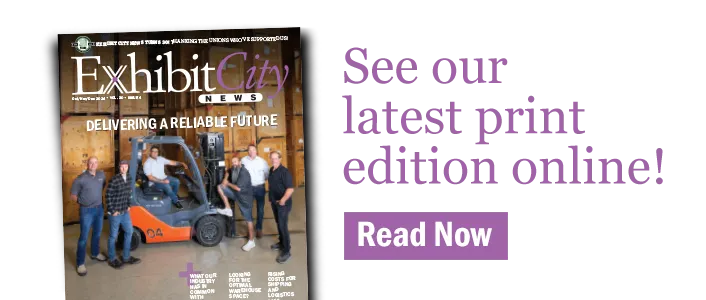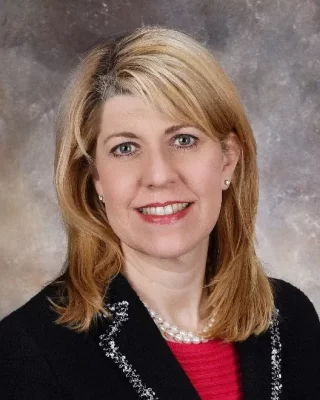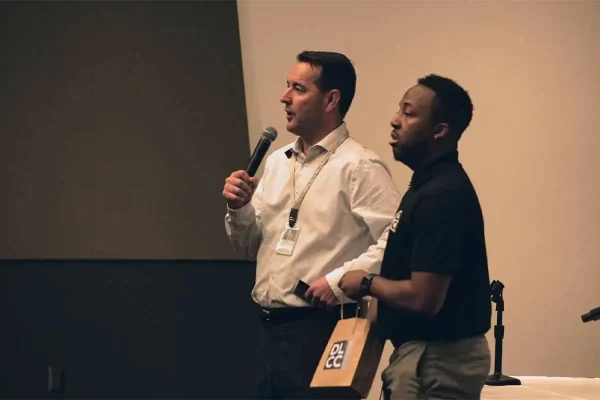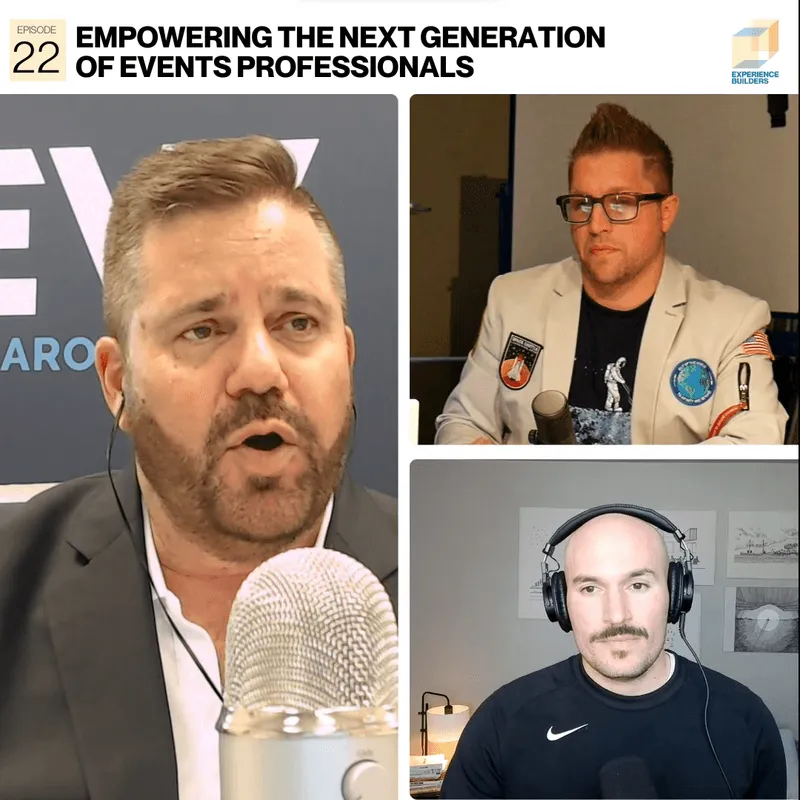
Exhibit City News recently caught up with Joe Houle, vice president of strategic development at LAB Exhibits, to speak about the new economy, building business in the long term and changes in the industry. This is the first in a series of interviews with sales and/or account executives.
How should account executives target prospects in this new economy?
Prospecting for new sales is hard work. It is important for account executives of every level of experience to continue to master the art of the cold call. If you can’t get past the gatekeeper, you haven’t done your job. Reaching the ultimate decision maker, often times not the exhibit manager, is where your strategy begins.
Once you have a prospect’s attention, you have to realize that design is only half the battle. Qualifying and pricing make up the other half. This economy has taken value out of design and placed a higher emphasis on pricing and delivery. Clients are paying less now and expecting more than any other time in our industry’s history. This type of win-win takes compromise and integrity on both the buyer and the seller.
Summing it up, prospecting requires tactical skills like getting to the decision maker as well as strategic abilities with regards to design and execution.
What personal attributes, outside of pure sales ability, are important to building a book of business for the long term?
The ability to provide personal touches is by far the most important. My family was in the restaurant business in Chicago for almost 100 years. I had my own restaurants for many years prior to entering the tradeshow market place. People want to feel like they’re your only customer and that’s what I do. I make sure that my support staff puts the customers’ needs first and that they treat each client as their only client. Because so much attention is placed on the personal side of a relationship, you get to know that person. I have an extensive book of business and I know just as much about their families, pets and hobbies as I do their business. It makes for a great relationship.
Balancing the personal and the professional, it is always important to exercise tactful candor when dealing with a book of business. Most of my clients buy from me because I’m “me.” That does not, however, let me put my guard down or fail to follow through with their marketing objectives. Being personal allows for one major screw up. If you’re a big picture AE, like I am, you’ll obsess on how to keep that one mistake from happening. Exercising candor must also be expressed in managing expectations of your customers and co-workers. Be transparent both inside and outside of your company and your true value will be realized.
Great account executives are natural entrepreneurs. They realize that nothing happens until something sells. When I owned Raging Bull Productions, a boxing promotion company, I learned to market face-to-face, close deals, negotiate venues and collect the money. The exhibit business is no exception. The fun starts when the deal is closed. Having to execute your promises has to seem effortless.
Focus. Focus. Focus. While prospecting, facing rejection on 90 percent of your pitches can cause you to lose focus. You must keep your eye on the prize and realize that with every rejection, you are one phone call from your next client. As an All-American college golfer and as a professional in the Canadian PGA tour, the pressure was intense all the time. Look past the next shot and strategize the win. It is no different in exhibit sales. Learning from past experiences with prospects helps you overcome the objection on the next one. As Winston Churchill said, “Never give in. Never. Never. Never.”
Lastly, show your clients that you can be multi-dimensional as you look out for the execution of their tradeshow programs. I am on site at over 80 percent of my set-ups. Not only does it help me understand the clients during the stressful time of installation and merchandising, but it also allows me to demonstrate my abilities to motivate and work with the different labor groups required for the successful execution of an event. People are surprised to see me in the marshalling yards and docks around the country supervising the off-loading of my client’s properties. You have to be all in.
The exhibit industry has changed a lot in the last two years. What should the veteran account executives be aware of from your perspective?
First of all, there’s a hungry generation of account executives looking to succeed veterans. The next generation admires what the generation before them has accomplished, but they want more. If that means taking business away to create their future, so be it. My advice to the veteran account executives is what brought you to the point you are at now, will not keep you there. People slow down and get comfortable. It’s when they let their guard down that they allow one of the new generation of sales executive to develop the rapport they need to take a client away. Stay hungry.
The more accomplished account executives worked hard to develop a book of business. When they get to a certain level of business, they feel it is in their best interest to manage the book as opposed to continue growing it. Account executives are running their own business. They need to surround themselves with a loyal support staff so they can continue developing a book of business. When an account executive gets to the point where they can’t delegate and feel good about it, that’s the point where their book stops growing and becomes vulnerable.
Make it a priority to prospect at least once each day. Whether it’s a cold call to a new or past prospect, make the call. People don’t give enough credit to timing and luck. Even your lost opportunities become opportunities again.
This mentality of continually prospecting is a 24/7 proposition. A successful account executive can’t build an admirable book of business without building a support structure at home to maintain this type of a life style. If you have it at home, the rewards of being a successful account executive are twice as sweet.
Sales is the hardest job in our industry. What kind of daily routine keeps you motivated and focused?
If you figure out how much per hour the hardest working account executives make, its not as much as you think. In other words, the few of us who are out there to make our mark in the world work 14 to16 hour days and 6 to 7 days per week. Eighty- to 90-hour weeks are common in my routine, but I could always use more time.
Everyday, I begin by browsing the Web sites of my customers. This is usually done at 5 a.m. before I head into the office. I do this to stay on top of developments in their business and product offerings. The most successful account executives are an extension of their clients’ marketing teams.
As I target specific clients and industries, I need more than just a show book and phone. I want to find the clients that fit the ideal growth profile. I develop “war boards” where I print out floor plans and highlight my targeted clients. I use different colors to differentiate targets. The large, Fortune 500 clients are highlighted in a color so that I don’t spend an inordinate amount of time on them. These are usually the clients that receive three to five cold calls each day from my competitors around the world. Also, I don’t want to go after the in-line exhibits that typically utilize the services of the general contractors. They are designated with a different highlighted color. The rest of the exhibitors are my hit list outlined with a bright color.
Those clients on my “hit list” are researched before receiving a call. Finding out if they have cross over shows is a priority with me because there are economies of scale in creating exhibit properties. Also, they generate a continual stream of business for my company. As I mentioned, I am a 24/7 account executive, so this research is done either in the evenings or on weekends if I’m not prospecting a show or servicing a client.
What sales professionals in our industry do you admire and why?
Those that immediately come to mind are Gene Faut, Chris Dorn, Natalie Benamou and John Elmms. Many of the higher volume account executives employed today have either been given their book of business or acquired the business through lay-offs and consolidations. This type of account executive doesn’t know how to grow a book of business, just acquire and manage it. My “fantastic four” are all self-made account executives in our industry. They started with nothing but a good work ethic and a determination to succeed.
I’ve met Gene on several occasions and he is as driven as he is sincere. He still aggressively seeks new business and is intimately involved with his whole sale team. He was an original partner at 3D Exhibits with Bill Dixon and has continually grown the company since. I admire his sales prowess and his ability as a team leader.
Chris Dorn came through the sales ranks as well. He was successful enough to buy interest in Lewellen and Best and currently serves as the company’s president. Chris has been a great mentor over the last three years and takes the time to groom the next generation of successful sales executives. I’m surprised more of the up-and-comers have not reached out to him.
Natalie Benamou and John Elmms are both recognizable names in healthcare exhibiting. They have built tremendous books of business operating under the premise of demonstrated integrity and providing a high level of service.
Joseph Houle is available for speaking engagements and can be contacted via email at jhoule@lbexhibits.com.































